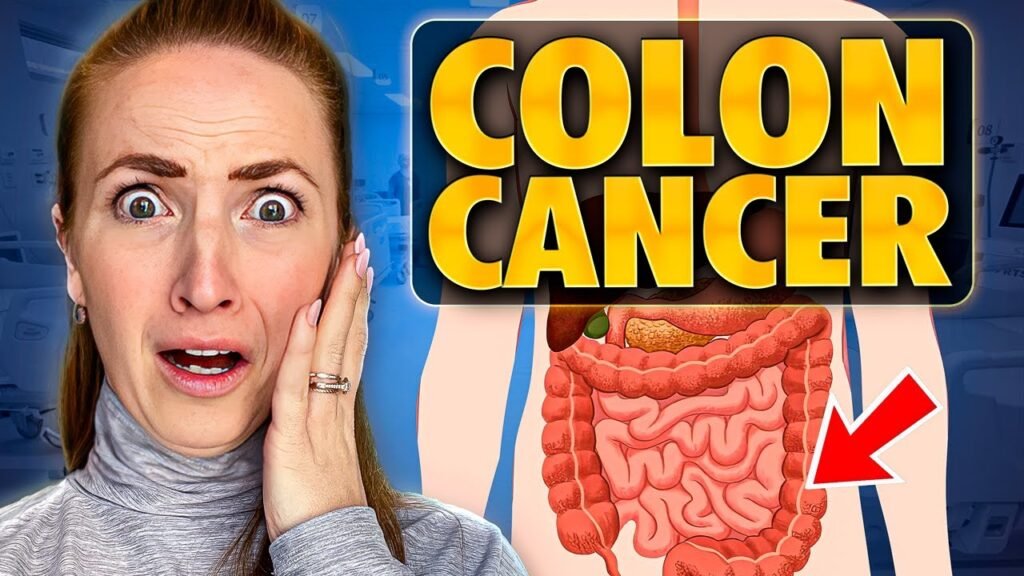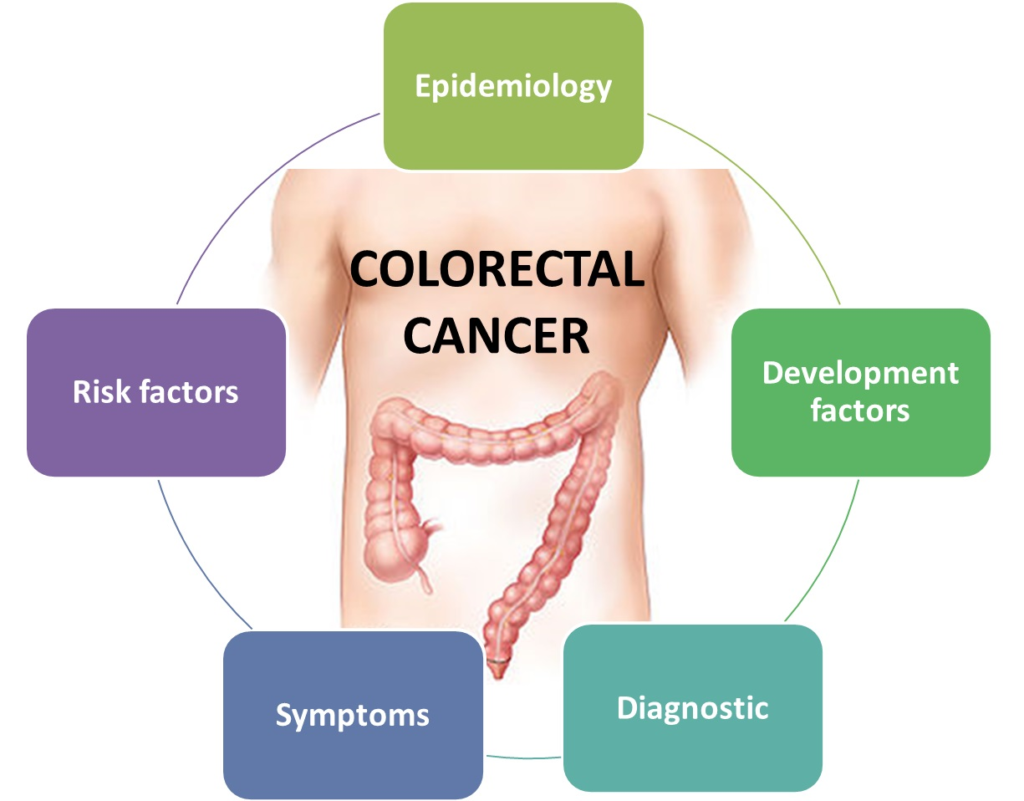Raquel Colon Cancer Symptoms are important to know in order to catch the illness early. Colon cancer can affect anyone, and the symptoms often start slowly. It’s important to recognize these signs so you can seek medical help quickly. Some symptoms can be easily mistaken for other problems, but they should not be ignored.
The most common Raquel Colon Cancer Symptoms include changes in bowel movements, feeling tired for no reason, and stomach pain. These symptoms might happen for a short time or could last for a while. If you notice any of these signs, it’s important to talk to a doctor to get checked out. Early detection can lead to better treatment and a higher chance of recovery.
1. Common Raquel Colon Cancer Symptoms to Watch For
Raquel Colon Cancer Symptoms can vary from person to person. Focusing on any progressions in your body is basic. Some common symptoms that could indicate colon cancer include:
- Changes in Bowel Movements: One of the earliest signs of colon cancer is a change in bowel habits. This may involve frequent diarrhea or constipation. If these changes last more than a few weeks, it may be time to talk to a doctor.
- Blood in Stool: Blood in your stool is one of the most concerning symptoms. This could be bright red or dark in color. It may indicate bleeding from the colon or rectum, which can be a sign of colon cancer.
- Abdominal Pain or Cramps: Colon cancer may cause discomfort or cramps in the abdomen. This pain could be persistent or get worse over time. If you experience consistent abdominal pain, it’s important to get it checked.
- Unexplained Weight Loss: Losing weight without trying, or without changing your diet, can be a symptom of colon cancer. This weight loss is often due to the body not absorbing nutrients properly.
- Fatigue or Weakness: Feeling tired or weak, even after rest, can be another sign. This may occur due to blood loss from the colon, which can lead to anemia.
These are some of the more common symptoms, but it’s important to remember that other conditions can cause similar signs. That’s why if you experience any of these symptoms for more than a few days or weeks, you should speak with a healthcare provider. They will be able to determine the cause and suggest the best next steps.
2. Why Early Detection of Raquel Colon Cancer Symptoms is Important
Detecting Raquel Colon Cancer Symptoms early is crucial for improving the chances of successful treatment. Colon cancer is often treatable if caught at an early stage, but if it spreads to other parts of the body, it can become more difficult to treat. That’s why regular screenings and paying attention to your health are essential.
Some of the early symptoms of colon cancer can be subtle and may not seem alarming at first. However, ignoring them can allow the cancer to grow and spread. The sooner colon cancer is diagnosed, the more treatment options are available. This could include surgery, chemotherapy, or radiation, depending on the stage of the cancer.
People at higher risk, such as those with a family history of colon cancer or those over the age of 50, should be especially mindful of any changes in their health. Colonoscopy screenings, which involve a camera looking inside the colon, are one of the best ways to catch colon cancer early. If you’re at higher risk or experiencing symptoms, your doctor might suggest having this test done sooner than usual.
Key Benefits of Early Detection:
- Higher success rates in treatment
- More treatment options available
- Less invasive treatments may be necessary
- Better quality of life after treatment
3. Raquel Colon Cancer Symptoms: The Role of Family History
Your family history plays a big role in your risk for developing Raquel Colon Cancer Symptoms. If you have a parent, sibling, or child who has had colon cancer, you may have an increased chance of developing it yourself. Genetics can influence the likelihood of developing colon cancer, so understanding your family’s medical history is essential.
People with a family history of colon cancer are often advised to start screenings at an earlier age. In some cases, doctors may recommend genetic testing to see if you carry any inherited mutations that increase your risk. It’s also important to be aware of other cancers in your family, as some hereditary conditions can increase the risk for both colon cancer and other types of cancer.
Even if you don’t have a family history, it’s important to be aware of other risk factors, such as a personal history of inflammatory bowel disease or certain lifestyle factors like a poor diet or lack of exercise. However, if you have a family history of colon cancer, you should be extra vigilant and stay up to date with screenings.
Genetic Risk Factors:
- Family history of colon cancer
- Inherited conditions like Lynch syndrome
- Individual history of fiery gut illness or polyps
- Age-related risk factors (typically over 50 years old)
4. How to Manage Raquel Colon Cancer Symptoms: What You Can Do
If you are experiencing any of the Raquel Colon Cancer Symptoms mentioned above, it’s important to take action. Making a meeting with a medical services proficient is the initial step. Your doctor will evaluate your symptoms and may recommend tests, such as a colonoscopy, to determine the cause. This is a key diagnostic test where a small camera is inserted into the colon to check for any abnormalities, such as tumors or polyps.
Along with getting tested, there are lifestyle changes you can make to improve your overall health. Eating an even eating routine that is low in handled food varieties and high in fiber can assist with bringing down the gamble of colon disease and backing great processing. Regular exercise is also important in maintaining a healthy weight and improving overall well-being. If you smoke, quitting can significantly reduce your risk of colon cancer.
5. What Tests Do Doctors Use to Diagnose Raquel Colon Cancer Symptoms?
To confirm the presence of colon cancer, doctors will use several tests. One of the most common and effective methods is a colonoscopy. During this procedure, a long tube with a camera is inserted into the colon to look for any abnormalities. If the doctor sees anything suspicious, they may take a biopsy, which involves removing a small tissue sample to check for cancer cells.
Other diagnostic tests might include blood tests to check for anemia, as this can sometimes be a sign of blood loss from the colon. Imaging tests such as CT scans or X-rays may also be used to determine if the cancer has spread to other parts of the body. These tests are important for developing a treatment plan and understanding the stage of the cancer.
If you experience symptoms of colon cancer, it’s crucial to get checked as soon as possible. Early detection can lead to early treatment, which can significantly improve your chances of successful recovery.
Common Diagnostic Tests:
- Colonoscopy
- Blood tests (to check for anemia)
- Imaging tests (CT scans, X-rays)
- Biopsy to confirm cancer
6. How to Prevent Raquel Colon Cancer Symptoms: Tips for a Healthy Lifestyle
While not all cases of colon cancer can be prevented, certain lifestyle changes can reduce your risk. One of the best ways to protect yourself is by maintaining a healthy diet. Eating a variety of fruits, vegetables, and whole grains provides the fiber your body needs to stay healthy. Reducing the intake of red meats and processed foods can also help lower your risk.
Staying active is another key factor in preventing colon cancer. Regular exercise can help maintain a healthy weight, reduce inflammation, and improve digestion. Avoiding smoking and limiting alcohol intake are also crucial steps in reducing your risk of colon cancer. In addition to lifestyle changes, getting regular screenings, especially if you’re over the age of 50 or have a family history, can help catch colon cancer early.
Prevention Tips:
- Eat a diet rich in fiber and low in processed foods
- Exercise regularly to maintain a healthy weight
- Avoid smoking and limit alcohol consumption
- Get regular colon cancer screenings after age 50
Conclusion
Raquel Colon Cancer Symptoms can vary, but being aware of them can help you detect any changes in your body early. Early detection is key to successfully treating colon cancer, so don’t ignore any unusual symptoms. If you notice blood in your stool, experience abdominal pain, or have changes in your bowel habits, make an appointment with your doctor. Your doctor can recommend the right tests and screenings to check for colon cancer.
Remember, lifestyle changes such as eating a healthy diet, staying active, and avoiding smoking can help reduce your risk. By staying informed and proactive about your health, you can take the steps needed to protect yourself from colon cancer.
FAQs:
Q: What are the first signs of Raquel Colon Cancer?
A: Early signs of colon cancer include changes in bowel habits, blood in stool, stomach pain, and unexplained weight loss. See a doctor if these symptoms persist.
Q: Can colon cancer be cured?
A: Yes, colon cancer can often be cured if detected early. The sooner it’s diagnosed, the more treatment options are available.
Q: How do doctors diagnose colon cancer?
A: Doctors diagnose colon cancer through tests like colonoscopies, blood tests, and imaging scans. A biopsy is also used to confirm cancer.
Q: Assuming that I notice blood in my stool, would it be advisable for me to be concerned?
A: Blood in the stool can be a sign of colon cancer or other conditions. For an exact determination, seeing a specialist as quickly as time permits is basic.
Q: How can I prevent colon cancer?
A: Prevent colon cancer by eating a healthy diet, staying active, avoiding smoking, and getting regular screenings after age 50.
Q: How as often as possible would it be a good idea for me to have a colon disease screening?
A: Regular screenings for colon cancer should begin at age 50. If you have a family history, screenings may need to start earlier. Always follow your doctor’s advice.


